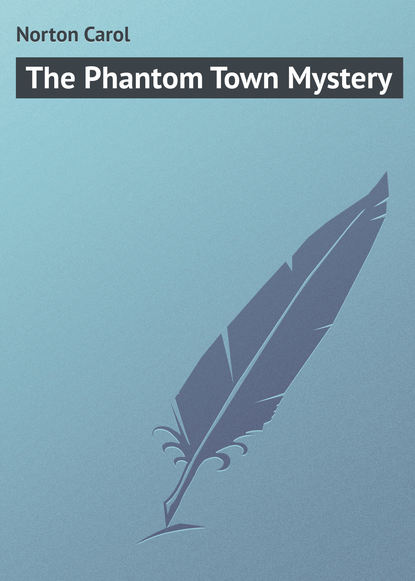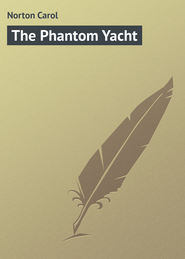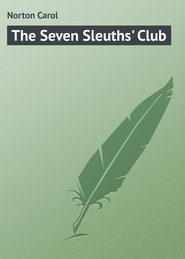По всем вопросам обращайтесь на: info@litportal.ru
(©) 2003-2024.
✖
The Phantom Town Mystery
Автор
Год написания книги
2017
Настройки чтения
Размер шрифта
Высота строк
Поля
Dora ran to Dick and pulled back his sleeve. “Thank heavens,” she cried, “he didn’t touch your wrist.”
“I reckon you’ve had a narrow escape all right, old man,” Jerry declared, his tone one of great relief. Then, self-rebukingly, “I ought to have warned you. Never put your feet or your hands anywhere that you can’t see.”
“Do you suppose there’s any poison in my coat sleeve?” Dick asked anxiously.
“No, I reckon not,” the cowboy said. “A Gila Monster packs his poison in his lower jaw and he has to turn over on his back before he can get it into a wound he makes.” Then, glancing at Mary and seeing that she still looked white and was trembling, he exclaimed, “Come, let’s go. I reckon it’s too hot in here at this hour.”
Dora, hardly knowing that she did so, clung to Dick’s arm as they waded through the sand to the gate.
“Oh, how I do hope we’ll never, never have to come to this awful place again,” Mary said. “To think that Dick might have lost his life here.”
“Well, I didn’t!” Dick replied. Then, with an effort at levity, he added, “Dora, you won! We did hear a gun shot.”
CHAPTER XX
INTRODUCING AN AIR SCOUT
As they were nearing Gleeson, Dick leaned forward and called, “Jerry, Dora and I were wondering if we ought to tell old Silas Harvey that we have found Little Bodil’s trunk?”
Not until the small car had climbed the last ascending stretch of road to the tableland and had stopped in front of the ancient corner store did he receive a reply. Then, jumping out, Jerry said in a low voice, “Mary and I have been talking it over and we reckon that we’d better wait awhile before telling.” Then to the girl on the front seat, “Shall I get your mail?”
“And mine! And mine!” a chorus from the rumble.
There were letters and papers but one that especially pleased the girls.
“Another bulgy-budget from Polly and Patsy,” Dora exulted.
“They’re our two best friends back East at Sunnybank-on-the-Hudson where I live.” This she explained to Dick as the little car started to rattle up the hill road through the deserted ghost town.
“I can tell you the rest,” Dick recited. “Polly is fat and jolly and eats chocolates by the box. Patsy is clever, red-headed and a boy-hater. Have I got it right? Anyway I’m sure that’s what you said the first time you told me about them. Oh, yes – all together you call yourselves ‘The Quadralettes.’”
“Righto. Go to the head of the class. Although you did draw one minus. Patsy is no longer a boy-hater. She’s met her conqueror. Or at least so their last letter reported. I’m wild to get home so that we may read this.” Then leaning forward, she called through the opening in the old top which covered the front seat, “Jerry, can’t you boys stay awhile? I’d like to share this letter with you and Dick.”
“Oh, yes, please do,” Mary seconded brightly. “I’m sure it isn’t time yet to milk that cow.” This was teasingly added, remembering what Jerry had said soon after the noon hour.
“You don’t have to plead, Little Sister,” Jerry smiled down into the eager, upturned face that looked so fair to him; “if it was time to milk the cow, I reckon I’d let the calf do it. We only need milk enough for the family and this morning Bossie was extra generous.”
When the Moore house was reached, Mary, anxious to see her dad, hurried indoors and went directly to his room. He had just awakened from his nap and looked so much better that Mary exclaimed gladly, “Dad, you’ll be sitting out on the porch next week. I’m just ever so sure that you will.” Then, to the nurse who had entered, “Oh, Mrs. Farley, isn’t Dad wonderfully improved? Don’t you think he’ll be well enough to go back East with me in October when school opens?”
“I’m sure of it!” the kind woman replied, then, dismissing the girl, she added, “It’s time for the alcohol rub, dearie. Come back at four and you may read to your dad until supper time.”
“Oh, I surely will.” For a long moment Mary’s rosebud cheek pressed the thin wan one she so loved, then she slipped away.
Dick had spoken with his mother a brief moment when Mary had first gone in and she had been pleased to see the deepening tan on his face. The boy had not told her of his recent narrow escape, as Jerry had called it when the Gila Monster had set its cruel jaws on his coat sleeve. Brave as he was, Dick could not recall the terror of that moment without experiencing it all over again. He was sure he would have nightmares about it for a long time to come.
When Dora tripped down from upstairs where she had been to tidy up, she found Dick waiting for her in the lower hall.
“Where are the two Erries?” she asked, then laughed as he looked mystified. “Mary and Jerry. Of course if it were spelled Merry, it would be better.”
“In the kitchen,” Dick replied. “I was told to guide you thence.”
They heard spoons rattling in glasses. “Oh, good!” Dora exclaimed. “That sounds like a nice, cool drink.”
Nor was she wrong. There at the table in the shady corner of the kitchen stood Mary mixing fruit juices she had poured from cans which Jerry had opened.
“Yum! Yum!” Dora exclaimed in high appreciation. “What is better than pineapple and strawberry juice and cold water from the spring cellar?”
“Sounds good to me,” Dick said, smacking his lips with anticipatory relish.
Mary called over her shoulder, “Dora, fetch some of Carmelita’s cookie snaps.” Then, as she placed the four tall glasses around the table, she added, “Sit wherever you want to. When the party is over, we’ll read the letter.” The refreshment lived up to its name and tasted even better than it looked. Dick, being on the outside, cleared away the things and Dora opened the letter.
The languid scrawl which so fitted Polly’s indolent personality was first in evidence, “Dear Absent Ones,” Dora read aloud —
“Greetings from Camp Winnichook in the Adirondacks – (so cool that we have to wear our sweater coats) – to the sizzling sands of desert Arizona.”
Then Patsy’s quick, jerky penmanship interrupted. “Crickets, just reading that made me wipe my freckled brow. Ain’t it awful? Those reddish brown dots that were so piquant on my pert pug nose have soared to my brow, spread to my ears, and dived to my chin. But, even with my beauty thus blemished, H. H. thinks I’m – ”
Big sprawling words cut in with, “It must be a case of love them and leave them then, for his winged lordship is about to fly away.” There was a blot of ink at that point as though there had been a struggle over the pen. Evidently Patsy had won, as her small scratchy penmanship followed. “Since H. H. is my friend, I consider it my sacred right to reveal all. Harry Hulbert, surely you remember all about him and his perfectly spiffy silver plane, which honestly looks like a big seagull. Oh, misery! I’m getting all tangled up. What I’m trying to say is that we had told you that he’s studying to be a pilot and that when he got his papers, he was to fly West and be an air scout. Well, he’s had ’em and he’s done gone! The whole object of this epistle is to introduce you to Harry before he drops down upon you. Heavens, I hope he won’t do it literally. Wouldn’t it be awful to have an airplane crash through your roof?”
Dora paused and looked glowingly across at Mary. “This flying Apollo is coming to Gleeson, I judge.”
Mary replied, “I’m terribly disappointed. Of course I knew it couldn’t happen, but I did wish, if he came, he could bring Patsy and Polly along with him.”
Jerry asked, “What’s this flying seagull going to do when he gets here?”
“He’s going to be attached to the border patrol,” Mary replied. “When there’s been a holdup, of a train or a stage, I suppose, Harry Hulbert is to fly over that region and watch for the escaping bandits.”
“Jolly!” Dick ejaculated. “That sounds like a great kind of an adventure to me. Jerry, let’s welcome him like a long lost brother; then, at least, he’ll take us up in his Seagull.”
Before the cowboy could reply Dora had continued reading, “Polly has told you that I’m goofy about H. H. but don’t you believe a word of it. I picked him out for you, Mary, so take him and be grateful.”
Dora wanted to look up at Jerry, but was afraid it would be too pointed, so she turned a page and exclaimed with interest, “Aha, here we have him in person. The Seagull’s photograph no less.”
It was an amusing snapshot. Under it was written, “Patsy Ordelle introducing Harry Hulbert to Mary Moore and Dora Bellman – also the ship.”
A pert, pretty girl with windblown hair and laughing eyes was pointing toward the youth at her side, who, dressed in flying togs, stood by his ship. He was making a bow, evidently to acknowledge the introduction, and so his face was not fully revealed. This was remedied by another snapshot of the boy alone standing with one hand on his graceful silver plane. Although not good looking, really, he had a fine, sensitive face, was slenderly built and had keen alert eyes.
“Now I’ll turn the mike over to Polly,” the pert handwriting ended. The languid scrawl took up the tale.
“Guess I was wrong about Pat’s being dippy about the silver aviator. He’s been gone two days and she’s been canoeing with ‘The Poet’ from ‘Crow’s-Nest-Camp’ up in the hills from dawn till dark and even by moonlight. For a once-was boy-hater, she’s going some.
“Well, say hello to Harry for us. He really is a decent kid. Write us the minute he lands. Wish I’d thought to send you a batch of fudge I’d made. Nuts are just crowded in it. Oh, well, up so near the sun it would probably have melted. Tra-la for now.
From Poll and Pat.”
Mary looked thoughtfully at, Jerry. “If Harry Hulbert left the Atlantic coast two days before this letter started, he must be in Arizona by now.”
“I reckon so. A mail pilot makes it in less than three days.”







